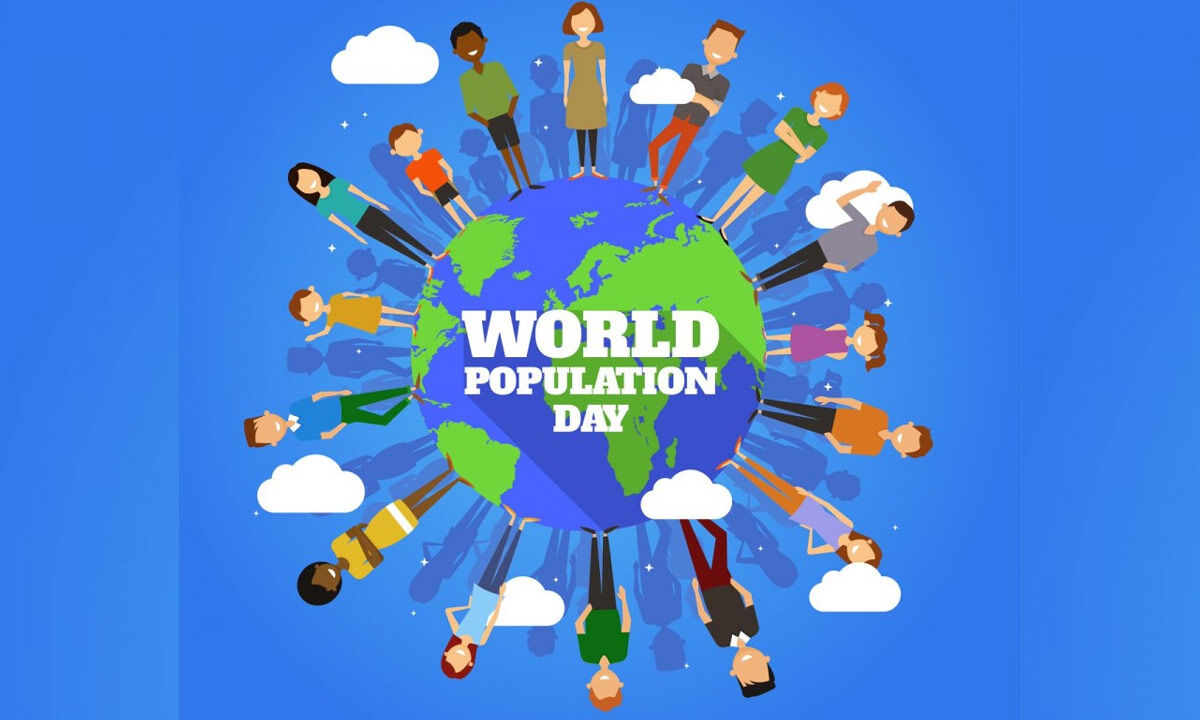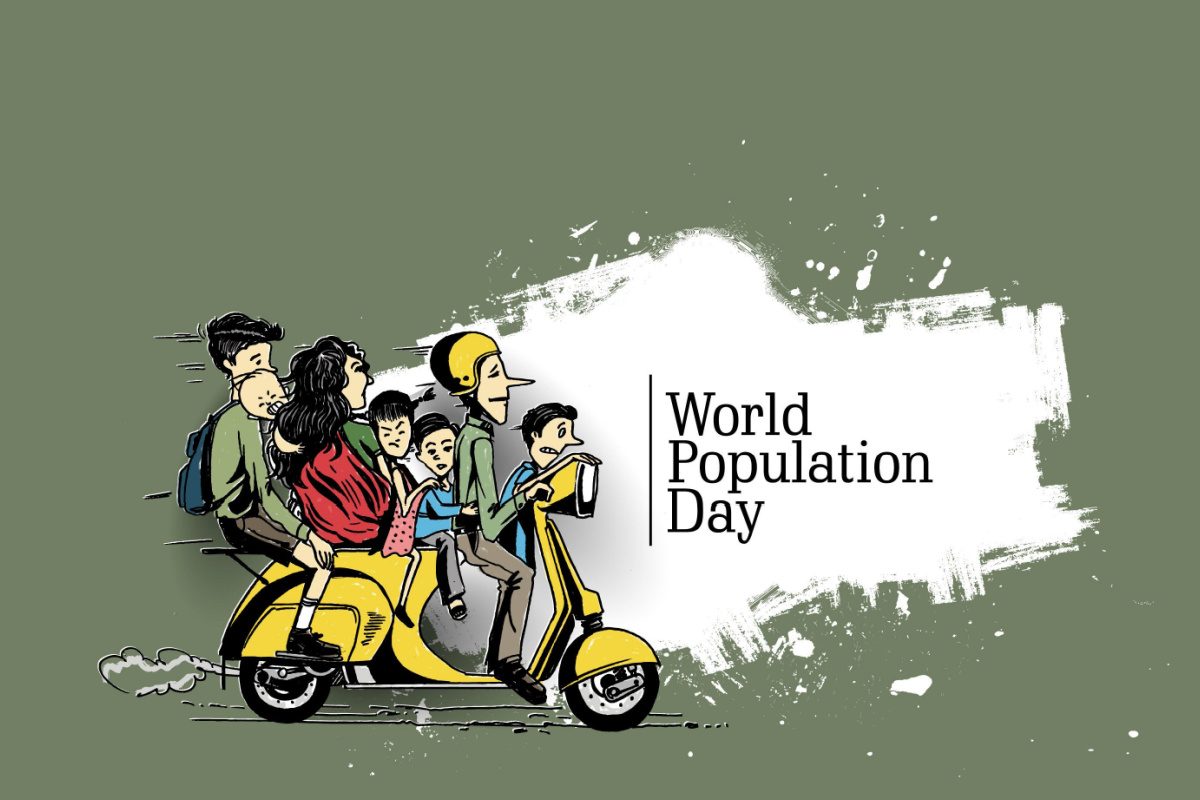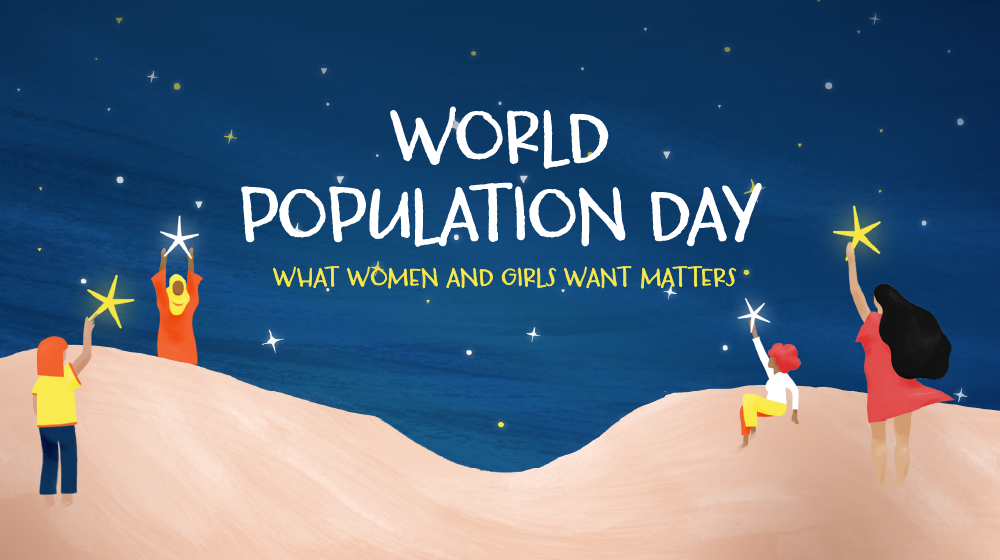The United Nations created World Population Day in 1989 to raise awareness of the significance of population-related issues. On July 11, 2024, it was first observed to draw attention to the difficulties posed by the world's population expansion. Dr. K.C. Zachariah originally presented the idea. It was projected that there would be 7,400,000,000 people on Earth in 2016, 7,500,000,000,000 in 2017, and 7,700,000,000 in 2019. The day emphasises how important it is to deal with these issues and advance sustainable development.
The theme of World Population Day

On July 11, we mark World Population Day, a day dedicated to raising awareness of the world's population, which has surpassed 8 billion, under the subject "Sustaining Population Growth for a Sustainable Future." The occasion will draw attention to population estimates and increase understanding of the negative effects of unrestrained development. The world's population might increase by 4 billion people by 2030, which would exacerbate already-existing problems including migration, resource shortages, climate change, and economic volatility. The startling rate of population growth emphasises the necessity of educating the public about the effects of this development and the necessity of sustainable practices to guarantee a successful and balanced future.
History of World Population Day

The United Nations Development Programme (UNDP) Governing Council created World Population Day in 1989 to increase public awareness of the escalating issues brought on by an expanding global population. Because of the unsustainable rate at which the world's resources are being drained, overpopulation is a serious problem. It is essential to comprehend how development and the environment are affected by population growth. The growing population also highlights the significance of gender equality, family planning, and maternal health by drawing attention to the health issues that women experience throughout pregnancy and delivery.
Population pressure is straining society as horrendous crimes against gender equality and human rights are occurring more frequently than they used to, particularly in emerging nations. As more people arrive on the earth, abuses like child labour and human trafficking become more common because the government is already unable to adequately care for its people.
Since 1987, there has been a notable growth in the global population. This has given rise to a variety of difficulties, including family planning, gender equality, environmental implications, and human rights concerns. The world population reached one billion in 1804, quadrupled to two billion in 1927, reached three billion in 1960, surpassed 2000 in 1989, and reached 7.5 billion in 2017, according to the chronology for World Population Day.
In 1989, the United Nations declared July 11 to be World Population Day. Within 40 years after surpassing 3 billion people, the population had quadrupled to 6 billion. Human trafficking and child labour are examples of infractions that are becoming more commonplace as more people join the planet.
Celebrations of World Population Day

Population pressure is straining society as horrendous crimes against gender equality and human rights are occurring increasingly regularly, particularly in emerging nations. The incidence of abuses like child labour and human trafficking rises when more individuals arrive on the scene as a result of the leadership's inadequate attention to its people.
Use World Population Day to explore resources and learn more about population concerns by delving deeply into their difficulties and possible solutions. Give your networks this information and urge them to consider these problems and how they might be of assistance. Always remember to hashtag your posts on social media with #worldpopulationday.
Contribute to population-related organisations, such as NGOs and nonprofits that assist women in family planning and contraception, assist individuals in escaping poverty, and assist refugees in escaping human rights violations or environmental problems.
Significance of World Population Day 2024

The United Nations Development Programme (UNDP) Governing Council created World Population Day in 1989 to bring attention to the mounting issues brought on by an expanding global population. Because of the unsustainable rate at which the world's resources are being drained, overpopulation is a serious problem. It is essential to comprehend how development and the environment are affected by population growth. The growing population also draws attention to health issues that women experience during pregnancy and delivery, emphasising the significance of family planning, gender equality, and maternal health.
With 8 billion people on the planet as of April 2024, it is more important than ever to adopt voluntary family planning programmes, corporate responsibility, equal access to healthcare and education, and sustainable economic practices. Key goals for 2024 were presented by UNFPA, with a focus on raising public knowledge of population changes and their effects. Proposing sustainable legislation, encouraging corporate partnerships, and developing creative solutions for international communities are some examples of calls to action. This historic event is essential to advancing group efforts towards a future that is inclusive and sustainable for all people on the globe.
Conclusion
The purpose of World Population Day 2024 is to increase public awareness of the effects of the 8 billion people on the planet, including migration, resource scarcity, climate change, and unstable economies. The day highlights the significance of resolving violations of human rights, family planning, gender equality, sustainable development, and maternal health. Encouraging business relationships, advancing sustainable laws, and creating innovative solutions for global communities are among the main objectives for 2024.





